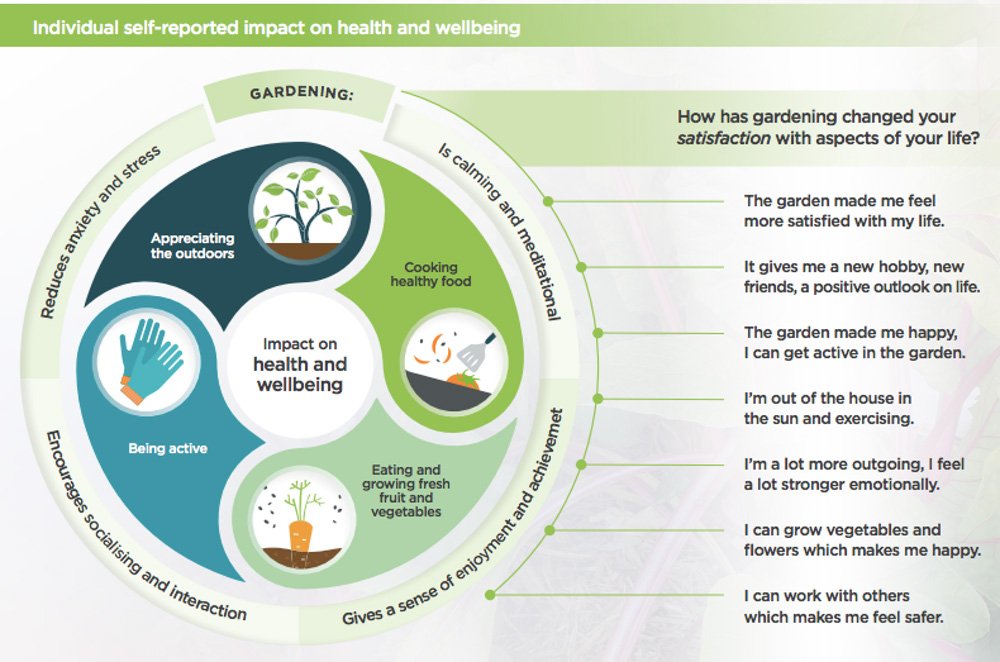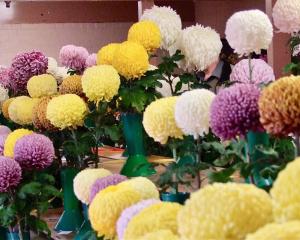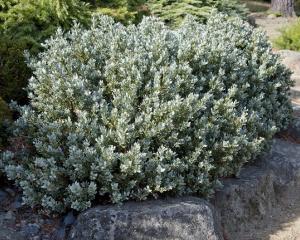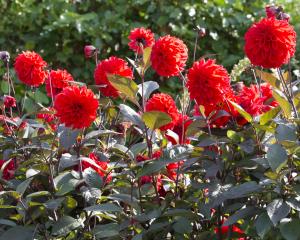
Benefits include stress reduction, improved mood, accelerated healing, attention restoration, productivity and heightened imagination and creativity.
Increased urbanisation has made it more difficult to connect with nature.
A gardening programme for disadvantaged groups, running in New South Wales since 1999, has aimed to overcome the inequity in access to green spaces. Called Community Greening (CG), it has reached almost 100,000 participants and established 627 community and youth-led gardens.
An independent evaluation by researchers at Western Sydney University explored the programme's impact on new participants and communities in social housing by tracking six new garden sites in 2017.
Around 85% of participants said the programme had a positive effect on their health, 91% said it benefited their community, 73% said they were exercising more and 61% were eating better. One participant said engaging in the programme even helped them quit smoking.
These insights have advanced understanding of how community gardening improves the mental and physical health of people in city social housing communities.
The study
Trends towards urbanisation and loss of green space have sparked concerns about population health and wellbeing.
This has led to a body of research on the impact of community gardens on children and adults.
The CG programme is supported by the Royal Botanic Garden Sydney in partnership with Housing New South Wales. Anecdotal feedback gathered by the botanic garden over the past two decades indicates gardening improves wellbeing and cohesion, fosters a sense of belonging, reduces stress and enhances life skills.
Based on this, CG aims to: improve physical and mental health; reduce antisocial behaviour; build community cohesion; tackle economic disadvantage; promote understanding of native food plants; conserve the environment; provide skills training to enable future employment opportunities and share expert garden knowledge.
The research investigated these outcomes, using questionnaires over seven months (before and after participation) and focus group interviews.
Initially, 27% of participants, who ranged in age from 29-83, reported they had never gardened prior to the programme. At the post-test questionnaire, the frequency of attendance improved for many of them. More than 40% gardened once a week and 22% every day.
Gardening benefits
Overall, we found participants felt a sense of community pride and achievement. The programme helped encourage change and community development. Some were happy to learn a new hobby.
Gardening also served as an opportunity to socialise with neighbours
and many participants said they saw a marked improvement in their health and wellbeing.
Some described the gardening experience as calming and cathartic, especially those who suffered from depression and anxiety. Some spoke of the positive aspect of having something to do each day.
Additional improvements in social health included a genuine enthusiasm for working in a team. The housing managers and social workers work alongside tenants helping to foster trust, co-operation, social collaboration and healthy relationships.
More importantly, this research showed Community Greening had aligned with contemporary social housing priorities. These include supporting health and wellbeing, nurturing a sense of community, enhancing safety and developing a sense of place. - The Conversation
Authors: Tonia Gray, Danielle Tracey, Kumara Ward and Son Truong, of Western Sydney University










